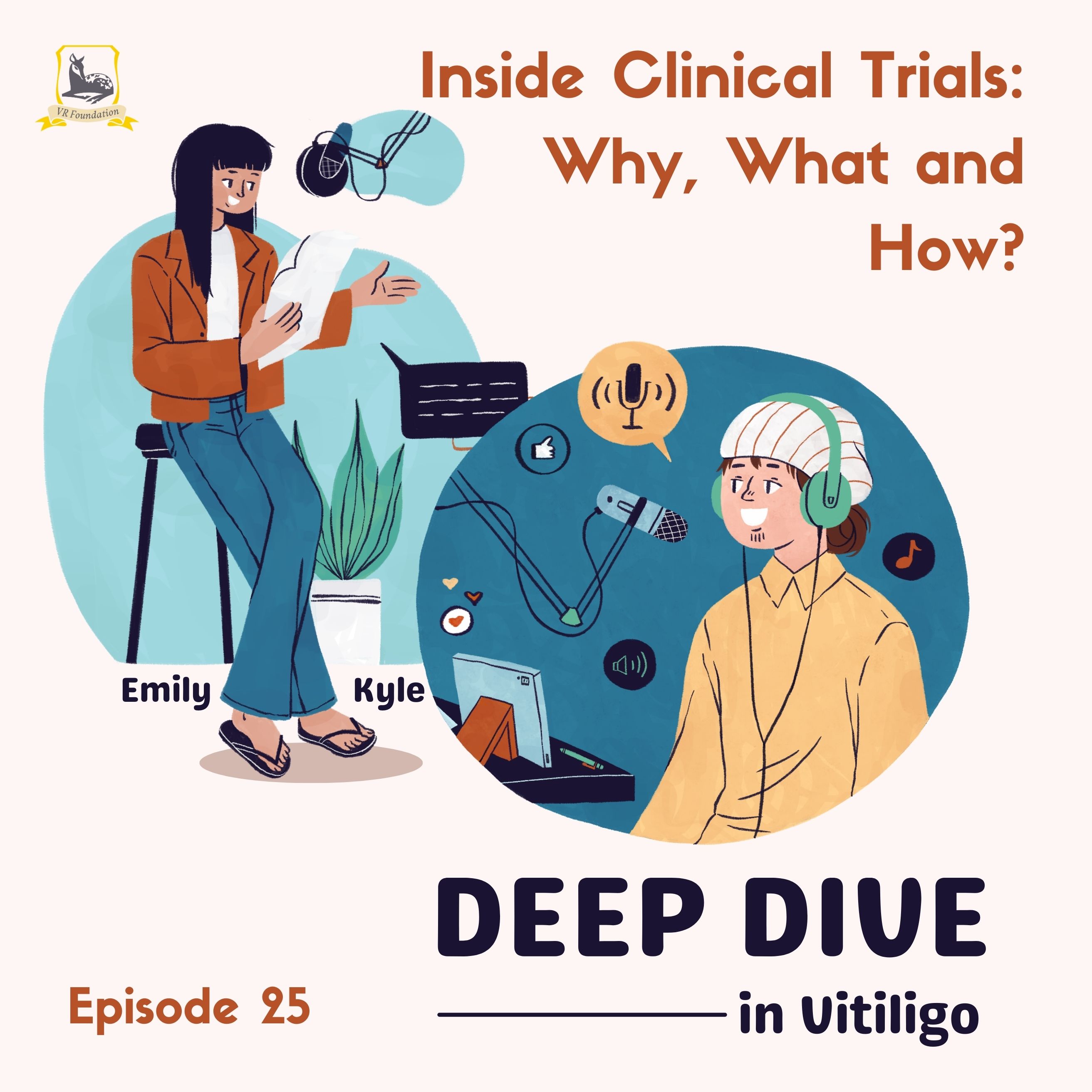Our work is entirely funded by private donations – we receive no money from government. Your money will help us continue funding research into vitiligo and supporting people affected by the condition.
Podcast
Inside Vitiligo Clinical Trials: Why, What and How? (Ep. 25)
Today, we’re diving into the cutting-edge world of vitiligo research. We’re talking about the latest clinical trials, game-changing treatments like Opzelura and JAK inhibitors, and why getting involved in these trials isn’t just about early access—it’s about making a real impact.
Thinking about joining a trial? We’ll cover what you need to know—eligibility, what to expect, and why talking to your doctor is key.
Plus, we’ve heard the frustration about location restrictions. That’s why we’re excited to announce two simultaneous studies happening across the Atlantic. If you’re in the USA or Germany, you can share your treatment experiences and get paid for a one-hour online video call.
Curious about where vitiligo treatment is headed? Want to be part of the change? Hit play and stay in the loop.
Suggested reading:

FAQOther Questions
- Are there any famous people with vitiligo?
Many celebrities have dealt with vitiligo while remaining in the public eye, maintaining a positive outlook, and having a successful career. Here are a few courageous famous peo...
- Vitiligo and Pregnancy
Pregnancy with vitiligo? The good news: vitiligo itself doesn’t make pregnancy unsafe. Most women stay stable (some even improve), though flares can pop up after birth — usually...
- How to get insurance coverage for vitiligo treatments?
Getting insurance coverage for vitiligo treatments can be challenging, but there are several steps you can take to improve your chances For a more in-depth look, check out our ...
Though it is not always easy to treat vitiligo, there is much to be gained by clearly understanding the diagnosis, the future implications, treatment options and their outcomes.
Many people deal with vitiligo while remaining in the public eye, maintaining a positive outlook, and having a successful career.
Copyright (C) Bodolóczki JúliaBy taking a little time to fill in the anonymous questionnaire, you can help researchers better understand and fight vitiligo.